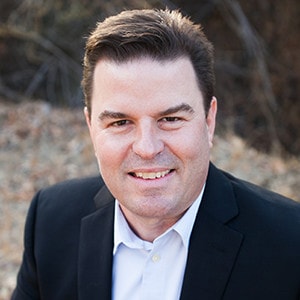
In the realm of ministry leadership, where hearts are held and souls are nurtured, a unique form of sorrow often lingers in the shadows – “pastor grief”. Coined to illuminate the distinctive dimensions of sorrow inherent to the calling, this term unveils the concealed strains of loss that resonate within the hearts of those who guide. Within these lines, we shall delve into the intricate tapestry of pastoral grief recovery, unveiling its intricacies, healing pathways, and the resilient hope that anchors it all.
Imagine pastors as custodians of compassion, carrying the burden of unspoken grief. While adept at guiding congregants through their own tribulations, they find themselves grappling with a specter of their own – an intangible bag filled with unnamed losses. These losses, unique in their nature, often remain ambiguous, making them more arduous to mourn. Yet, as the saying goes, one cannot grieve what hasn’t been named. This unspoken burden, often exacerbated by the uncertainties of the post-COVID world, demands attention, validation, and healing.
The pandemic, an unprecedented chapter in human history, ushered in a tsunami of grief. Among the waves of traumatic loss and relational upheaval, pastors found themselves navigating the turbulent waters of ministry leadership. The ripples of COVID-19 spread beyond physical health, infiltrating emotional well-being, spiritual connections, and church dynamics. In this era of rediscovery, where old norms give way to new paradigms, pastors stand at the precipice of change – tasked with leading their flocks through uncharted territories.
In the midst of these shifts, the looming question is: How can pastors effectively lead their congregations into the future while acknowledging, addressing, and healing from their own pastor grief?
The path forward lies in embracing grief as a communal endeavor. Just as Jesus openly wept in the presence of those who cared, pastors too can find solace within the arms of a supportive community. Peers, mentors, therapists – these pillars of strength can offer the space needed to unravel the complexities of grief, untangle emotions, and pave the way for restoration. Just as pastors are called to shepherd, they too deserve a shepherd for their own souls.
However, it’s vital to recognize that grief is as diverse as the human experience itself. There’s no template to follow, no “right” way to grieve. Each pastor’s journey is uniquely their own, a testament to the intricate web of their emotions and experiences. In the labyrinth of mourning, permission to grieve authentically and at one’s own pace is of utmost importance.
Creativity can also be an ally in this process. Rituals, both simple and profound, can aid in the navigation of grief. Consider the pastor who carefully cut images of departed congregants from a directory, offering prayers as each image was released to the flame of a burning candle. This ritual, born from personal meaning, allowed space for closure and renewal. Grief, when transformed into a tangible expression, becomes a bridge to healing.
This narrative is one that intertwines grief with hope, threading its way through the journey of faith. It is the way of Biblical lament. Amidst the shadows of loss, the promise of a new dawn remains unbroken. It’s the paradox of grieving with hope – of honoring pain while tethering oneself to the profound solace of the divine.
As the world shifts towards an uncertain new reality, pastors inhabit a liminal space, standing between the known and the yet-to-be-discovered. In this transformative threshold, formation of the soul takes root. Grief, when tenderly embraced, becomes a crucible of growth, a chrysalis of transformation.
Dear pastor, as you navigate this liminality, remember that grief and hope can coexist. They shape a mosaic of resilience, emotional fortitude, and spiritual growth. Just as you shepherd your congregation, tend to the sanctuary of your own heart. Unveil the layers of pastor grief, for within the process, you shall uncover the seeds of renewal.
In the words of sacred scripture, grief is not without hope. This truth, resilient and unwavering, shall guide you through the valley of sorrow, leading you towards a horizon of healing, growth, and newfound purpose.

Rev. Chris Adams, Ph.D., is a Professor, Chaplain, and Executive Director of the Mental Health and the Church Project at Rosemead Graduate School of Psychology (Biola University). Chris is the lead researcher for the Flourishing in Ministry project. He is a frequent speaker at seminaries, pastors’ and spouses’ retreats, and conferences. View Bio
